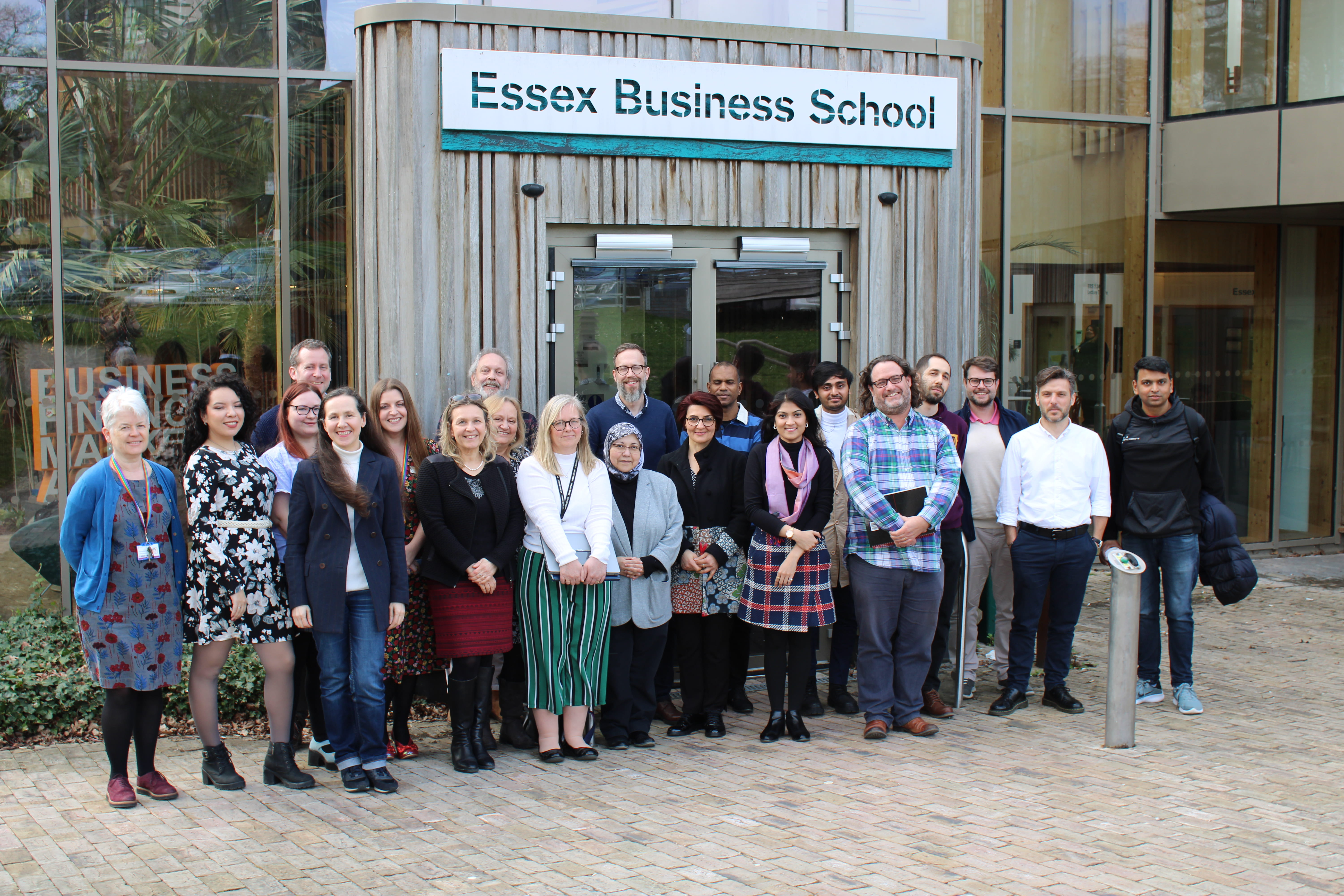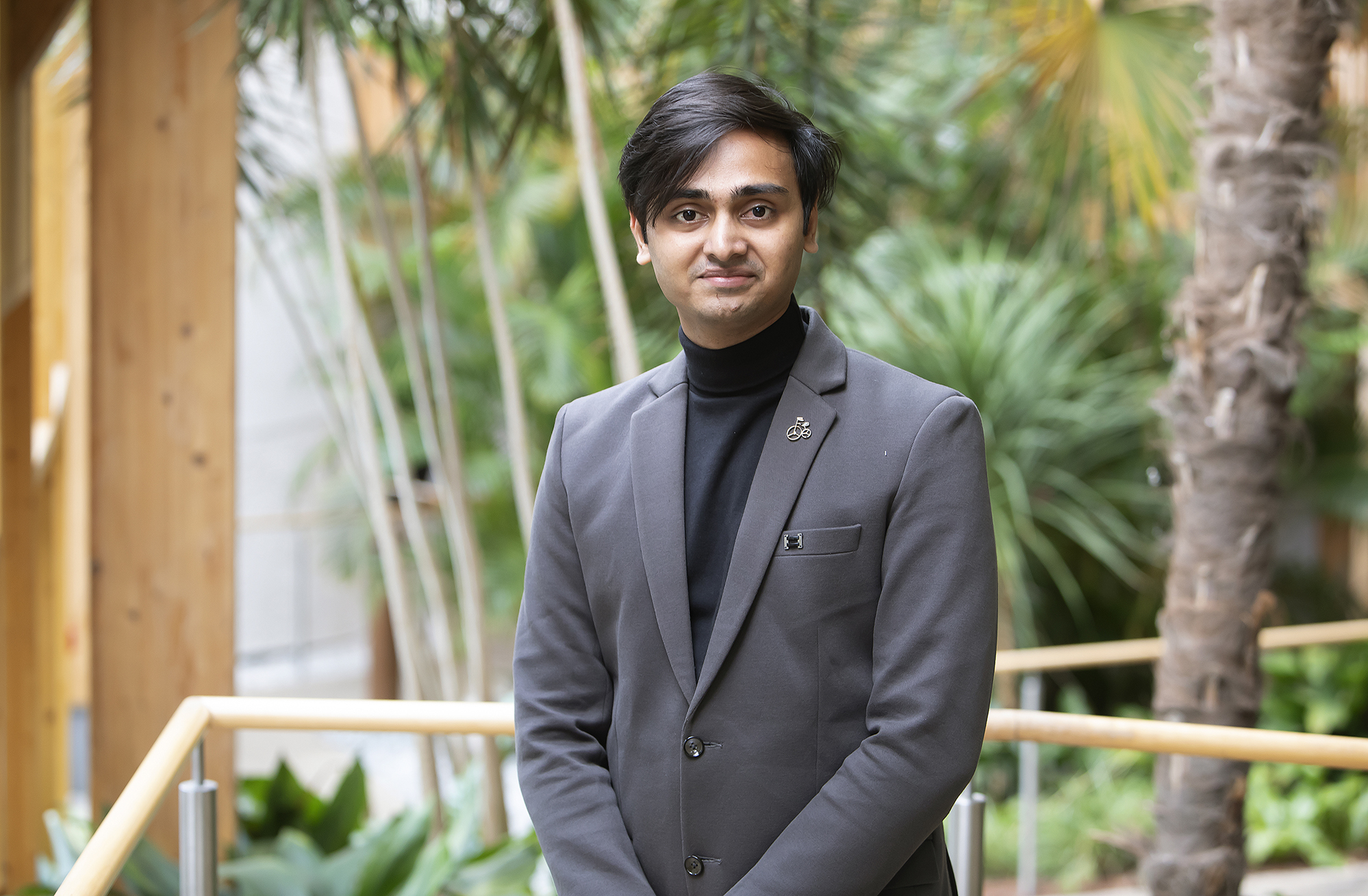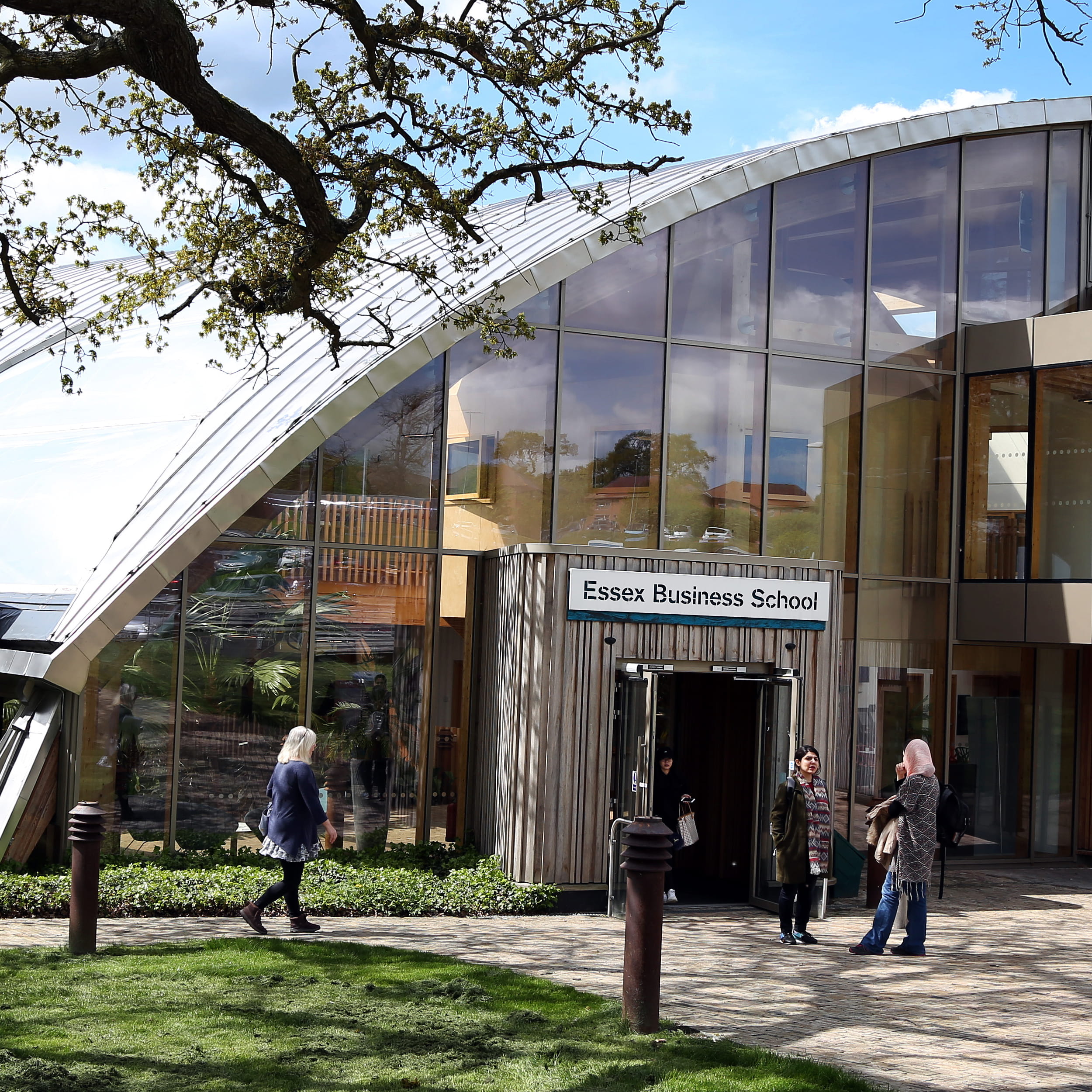What sustainability means for us at Essex Business School

How Essex Business School is leading the way in sustainability
Sustainability is a topic that has been gaining increasing attention in recent years, and for good reason. It refers to maintaining a balance between economic, social, and environmental needs for current and future generations. As individuals and businesses, we are responsible for prioritising sustainability and taking action to reduce our impact on the planet.
Essex Business School (EBS) is committed to sustainability. At the end of the spring term, staff and students from EBS came together for a day-long event focused on sustainability. The day featured speakers from EBS as well as guest speakers.
Sustainability at EBS
Professor Claudia Girardone, Dean of EBS, and Dr Nicholas Beuret, lecturer in innovation and sustainability, started off the day by explaining what sustainability means to EBS.
Professor Girardone said one way to interpret sustainability is by viewing it as a commitment to ethical behaviour and responsible practices that help to build a more sustainable environment. This means taking into consideration the impact that our actions have on economic, social, and environmental factors, both in the short and long term. She also highlighted the Sustainable Development Goals (SDGs), which are a set of 17 goals that were established by the United Nations in 2015, with the aim of achieving a more sustainable future for all by 2030. The University is committed to these goals, which call upon businesses to be more creative in their approaches to solving sustainable development challenges, while ensuring they protect labour rights and environmental and health standards. Dr Beuret emphasised the importance of collaborations, social movements, and social governance in achieving sustainability at EBS. He linked environmental sustainability with economic sustainability, emphasising that the two are interconnected. He suggested that by focusing on sustainable economic practices and protecting the environment, we can create a more prosperous and sustainable future for all.
Sustainable Essex awards
EBS Accreditation Manager Maricia Klincke talked about the Sustainable Essex awards. She highlighted the accreditation achievements and sustainability goals which the school has developed in association with the University’s sustainability team. The program aims to reduce resource consumption and achieve net zero emissions. EBS has received recognition for its sustainability efforts, including the NUS Green Impact Award and the Gold Essex Sustainable Award for 2020-21. The school has completed 15 actions, including initiatives to improve recycling and share information electronically, all of which have contributed to the overall goal of reducing the school’s environmental impact. This year EBS has been awarded GOLD in the Sustainable Essex Awards 2023.
Sustainability strategies of UK universities
James Norman, formerly of EBS, now with Manchester Metropolitan University, gave a talk on the analysis of sustainability strategies in universities in the UK. He highlighted that the increase in the number of international students has resulted in a larger carbon footprint for universities. To address this, he proposed that universities consider these parameters when designing their strategic objectives. This can include measures such as investing in renewable energy sources, improving energy efficiency, and reducing waste.He warned against going with a business-as-usual approach, which may perpetuate unsustainable practices. Instead, he suggested that universities should embrace eco-modernism, which involves finding innovative solutions that enable us to meet our needs while also protecting the environment.
Sustainability and the MBA
James Fowler, deputy director of MBA, highlighted the importance of external partners, such as membership awarding bodies, in developing sustainable solutions in businesses. He noted that these organisations can provide valuable resources and expertise, as well as recognition for businesses that prioritise sustainability. MBA student Luisa Ramos Restrepo emphasised the importance of sustainability in the program's modules. According to her, sustainability is not just a concept that should be studied and understood but should be integrated into people’s daily life and work. She believes that by thinking sustainably, we can bring about change and make a significant impact.
Incorporating sustainability in Startups
Andy Mew, from the Essex Startups team, highlighted how courses around entrepreneurship can incorporate and encourage sustainability. Andy mentioned alumni startups that are promoting sustainability and companies that have successfully incorporated sustainable practices. He suggested that events such as Veganuary, Fair Trade Fortnight, World Earth Day, and National Recycling Day can provide opportunities for students to learn about and promote sustainability.
United Nations SDGs in the curriculum
Udichi Bose, senior lecturer in finance, and Thanos Verousis, reader in finance, highlighted the importance of incorporating sustainability into the finance curriculum. They emphasised the need to create financial products and services that are accessible, affordable, and sustainable for individuals and businesses, in line with the World Bank's vision of financial inclusion. They also discussed the issue of “greenwashing”, where companies make false or misleading claims about their sustainability practices, and the need to address this issue through education and awareness.
Principle of Responsible Management Education (PRME)
Manuela Nocker, senior lecturer in organisation and sustainability, highlighted the Principle of Responsible Management Education (PRME) that was founded by the United Nations in 2007. She explained the six PRME principles: purpose, value, method, research, partnership, and dialogue. Through increasing student involvement in industry visits and essay writing, EBS has seen a positive shift in their PRME engagement. This has allowed them to foster a culture of responsibility and sustainability in their programs, emphasising the importance of responsible management practices.
Closing words
EBS’s efforts to incorporate sustainability into its programs and initiatives demonstrate its commitment to responsible and ethical management practices. From courses on entrepreneurship and finance to events promoting sustainability, the school provides students with opportunities to develop a strong understanding of sustainability and its role in the business world.
As we continue to face challenges related to climate change and environmental degradation, it is crucial for businesses and organisations to prioritise sustainability in their operations. By incorporating sustainability into its curriculum and initiatives, Essex Business School is equipping future business leaders with the knowledge and skills needed to create a more sustainable and equitable future.


